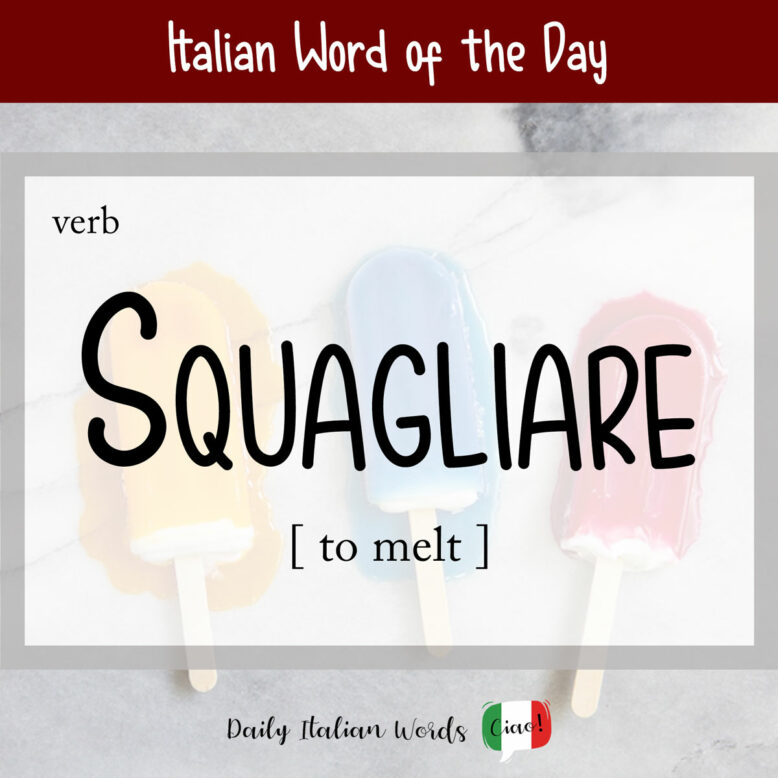Anyone who knows me is aware of my fondness for whimsical words, and that’s precisely what prompted me to write about the verb squagliare today! I recently came across it in a friend’s Facebook post in which he describes the feeling of “melting” in the 97°F heat currently engulfing Italy. (I must admit, it’s at times like this I am happy to live in Wales!)

Squagliare is a regular -ARE verb that is conjugated in the following way in the present tense:
- io squaglio
- tu squagli
- lui squaglia
- lei squaglia
- Lei squaglia
- noi squagliamo
- voi squagliate
- loro squagliano
Squagliare is a synonym for the more common sciogliere (to melt). It is the combination of the”s-” prefix and the regional verb quagliare (to curdle / to coagulate), which in turn finds its origin in the Latin coagulare (to coagulate).
Il sole ha squagliato il mio gelato.
The sun melted my ice cream.
Squagliare can also become an intransitive pronominal verb, which is a verb that is accompanied by a reflexive pronoun (squagliarsi).
Il gelato si è squagliato al sole.
The ice cream melted in the sun.

Used as a pronominal verb, it has also two colloquial figurative meanings: “to sweat excessively due to the heat,” and “to be overwhelmed by emotion, to be moved”.
Basta che lei mi guardi in un certo modo e io mi squaglio completamente.
All she has to do is look at me in a certain way and I completely melt.
Finally we have the familiar squagliarsela, yet another pronominal verb made up of squagliare + the reflexive pronouns si and la. Used in this way, the meaning changes completely: it is akin to saying “to clear/take off” or “to flee/run away”.
Guarda quei ragazzi, hanno bevuto un sacco di birra e adesso se la squagliano senza pagare…
Look at those guys, they drank loads of beer and now they’re taking off without paying…
Heather Broster is a graduate with honours in linguistics from the University of Western Ontario. She is an aspiring polyglot, proficient in English and Italian, as well as Japanese, Welsh, and French to varying degrees of fluency. Originally from Toronto, Heather has resided in various countries, notably Italy for a period of six years. Her primary focus lies in the fields of language acquisition, education, and bilingual instruction.


